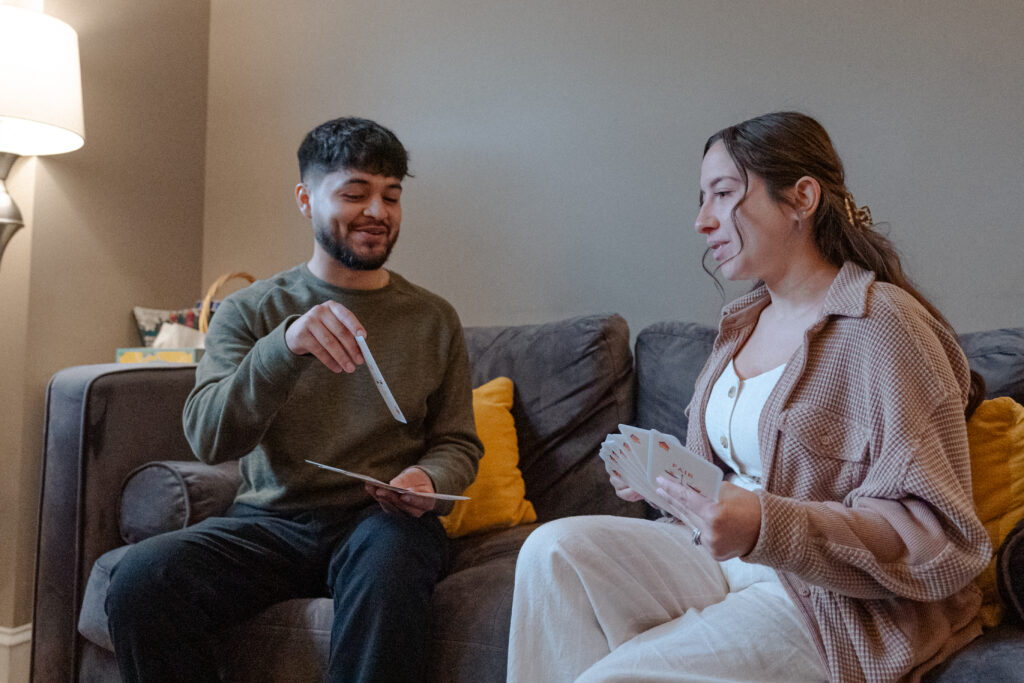Menu

Communication is the heartbeat of any relationship, but in couples therapy, how we say things matters just as much as what we say. When working with Emotionally Focused Therapy (EFT), I encourage couples to use inviting language—words and phrases that foster connection, openness, and emotional safety.
Why Does Inviting Language Matter?
Encourages vulnerability and emotional attunement
Reduces defensiveness and conflict escalation
Fosters a secure bond between partners
Creates a space for deeper understanding and empathy
According to Johnson et al. (2019), EFT helps couples break negative cycles by reshaping interactions into bonding moments rather than disconnections. The language partners use plays a significant role in this transformation.
Inviting vs. Non-Inviting Language
To illustrate the impact of words, here are examples of inviting vs. non-inviting language in common relational dynamics:
Non-Inviting: “You never listen to me!”
Inviting: “I feel unheard, and I really need to know you’re listening.”
Non-Inviting: “You’re always so defensive!”
Inviting: “I see that this is hard for you, and I want to understand what’s coming up for you.”
Non-Inviting: “Do you even care about me anymore?”
Inviting: “I feel distant from you lately, and I miss feeling close. Can we talk about it?”
Non-Inviting: “Fine, whatever. I guess I’ll just drop it.”
Inviting: “I don’t want to fight. Can we find a way to work through this together?” The Science Behind It
Research on EFT emphasizes that attachment bonds thrive when couples engage in emotionally responsive communication (Johnson, 2004). Inviting language shifts the focus from blame to emotional needs, which enhances emotional accessibility and responsiveness—key elements of
secure attachment. Studies show that when partners express themselves in a way that invites connection rather than defensiveness, the brain responds with increased activity in regions associated with empathy and trust (Coan & Sbarra, 2015). This means that using more inviting language can actually rewire the brain for healthier interactions, strengthening a couple’s emotional bond over time.
Moreover, EFT interventions highlight how emotional attunement fosters a secure attachment, allowing partners to feel safe enough to express their deepest fears and longings. When couples practice inviting language, they are not just improving communication but actively reshaping their relational patterns, moving from distress to closeness and security.
How to Practice Inviting Language in Your Relationship
Pause Before Reacting: Take a breath before responding to ensure your words align with your emotions.
Use “I” Statements: Shift from blame (“You make me feel…”) to ownership (“I feel…”). Express Longings, Not Just Complaints: Instead of pointing out what your partner does wrong, express what you need from them.
Ask Open-Ended Questions: Engage curiosity instead of assumptions (“Can you help me understand what you’re feeling?”).
By embracing inviting language, couples can transform their conversations from battlegrounds into bridges—strengthening their emotional bond and deepening their connection.
References
Coan, J. A., & Sbarra, D. A. (2015). Social baseline theory: The role of social proximity in emotion and economy of action. Current Opinion in Psychology, 1, 43-47.
Johnson, S. M. (2004). The practice of emotionally focused couple therapy: Creating connection. Routledge.
Johnson, S. M., Bradley, B., Furrow, J., Lee, A., Palmer, G., Tilley, D., & Woolley, S. (2019). Attachment theory in practice: Emotionally focused therapy (EFT) with individuals, couples, and families. Guilford Publications.
Written by: Andreas Jenrich